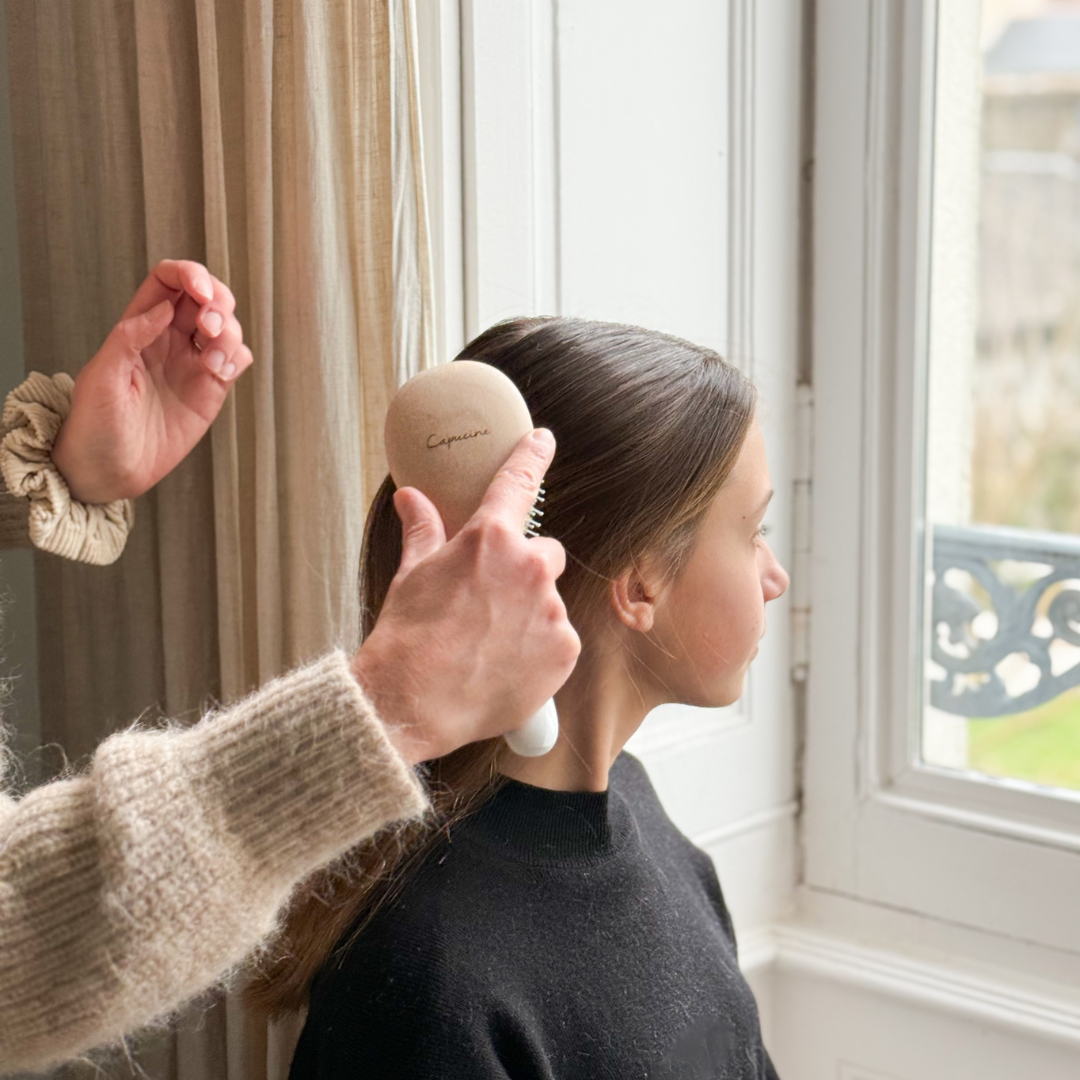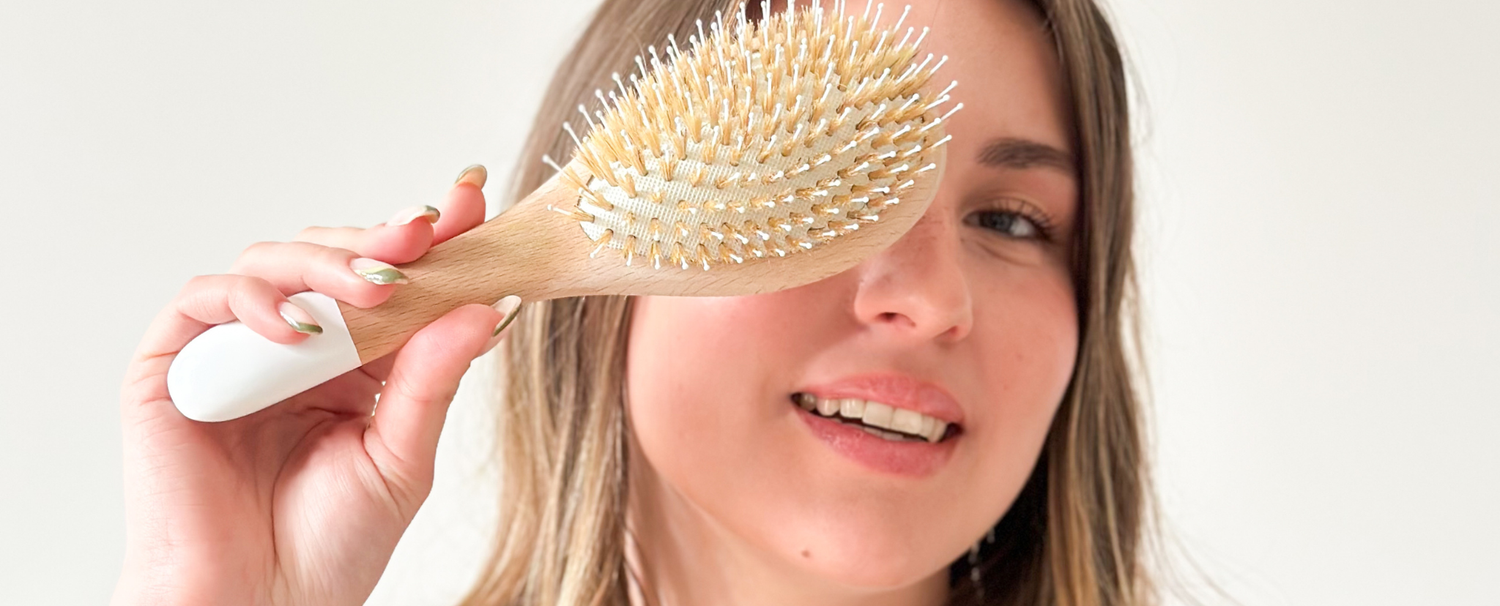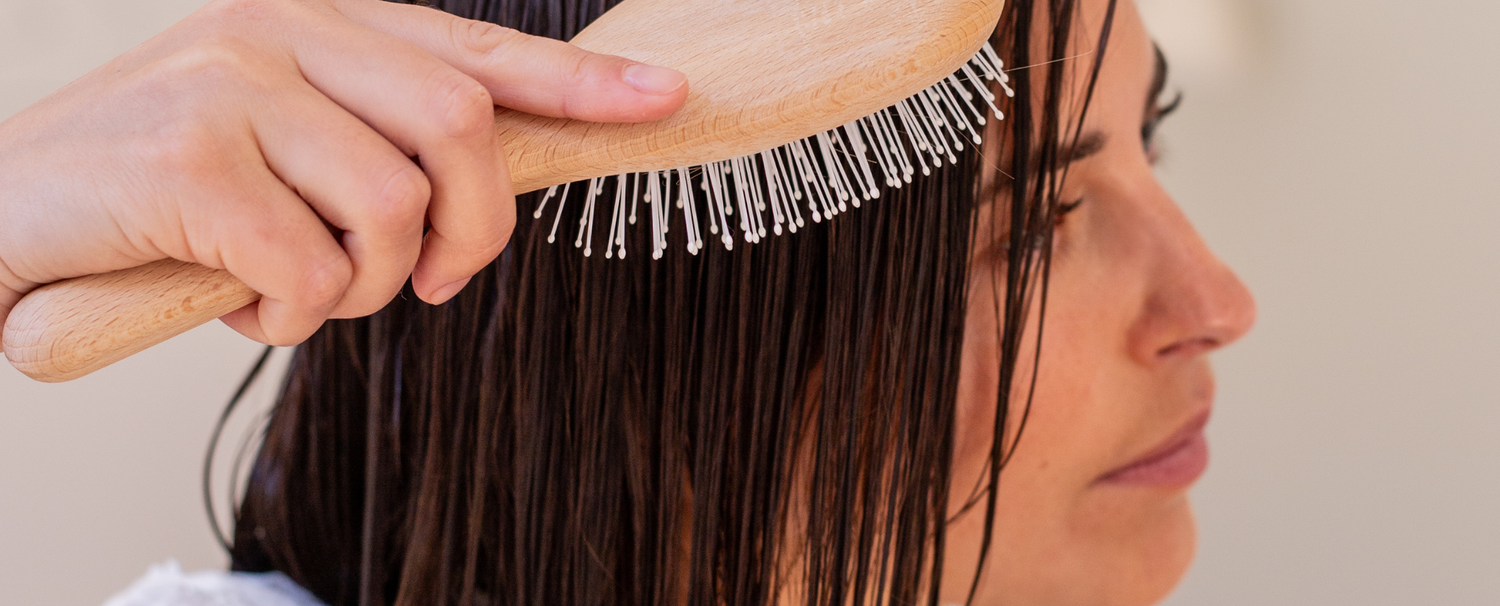

Get rid of dandruff permanently
Unsightly, embarrassing, and sometimes a source of insecurities... Dandruff affects many people, regardless of age or hair type. Whether oily or dry, it reflects a scalp imbalance that shouldn't be ignored. Before trying to eliminate it, it's essential to understand its origins. Between internal factors, inappropriate care, and everyday habits, the causes of dandruff are multiple. Fortunately, natural solutions exist to soothe the scalp for the long term. Here's everything you need to know to say goodbye to dandruff and regain healthy hair.
What causes dandruff?
Dandruff often results from an imbalance in the scalp, caused by internal or external factors. Within our bodies, certain elements disrupt this balance: stress, hormonal imbalances, alcohol or tobacco consumption, but also a diet too rich in refined sugars, processed products, or fried foods. These bad habits create a favorable environment for the development of dandruff.
In addition to these internal causes, there are external factors. Using overly aggressive hair care products is one of the main culprits. Many conventional shampoos contain powerful surfactants that irritate the scalp and promote the appearance of flakes. Chemical hair colors can also be harsh on the skin and trigger dandruff. Extensive use of heating appliances such as hair dryers, straighteners, or curling irons, as well as regularly wearing tight hair caps or hair ties, can also disrupt the scalp's natural balance.
Finally, certain skin conditions such as seborrheic dermatitis, psoriasis, eczema, or a fungal infection can cause persistent dandruff. In these cases, it is strongly recommended to consult a healthcare professional for a diagnosis and appropriate treatment.

Dry dandruff or oily dandruff: how to differentiate them?
Identifying the type of dandruff you suffer from is essential to taking the right steps. Dry dandruff is the most common type. It generally occurs on normal to dry scalps. Fine, white, and light, it easily detaches from the scalp and falls onto clothing. While it can sometimes cause mild itching, it is mostly bothersome from a cosmetic point of view.
Conversely, oily dandruff is more common on scalps with a tendency to be oily. It has a thicker, slightly yellowish appearance and often sticks to the scalp, sometimes forming patches. This type of dandruff is often accompanied by more severe itching, or even redness, because the scalp is irritated. Understanding this distinction allows you to better target the treatments to apply to effectively eliminate it.

What natural solutions are there to combat dandruff?
There are simple daily steps you can take to soothe your scalp and prevent dandruff from recurring. The choice of shampoo plays a key role: it's best to choose a gentle, natural shampoo that's free of sulfates and irritants. Ideally, it should be organic and respect the scalp's sensitivity and be used sparingly. Additionally, it's recommended to rinse your hair with lukewarm or cold water to close the scales and soothe the scalp.
Spacing out your shampoos is also important. Washing your hair too frequently can further damage your scalp, but you also shouldn't let sebum build up, which can lead to dandruff. The ideal is to find a balance based on your needs.
Limiting the use of heating appliances is also essential. Hair dryers, straighteners, and curling irons can weaken the scalp, especially when used at high temperatures. When possible, air drying remains the best option.
Certain natural active ingredients can also be incorporated into your hair routine to boost anti-dandruff action. Aloe vera gel, thanks to its antiseptic and soothing properties, quickly relieves itching. Tea tree essential oil, meanwhile, is a powerful antibacterial and antifungal agent thatpurifies the scalpand effectively fights against the fungi responsible for dandruff. Finally, cider vinegar, used as the last rinse water, helps balance the pH of the scalp and eliminate oily dandruff.

Dandruff isn't inevitable. By understanding its origins, identifying its nature, and adopting the right habits, it's entirely possible to soothe your scalp for the long term. Focusing on gentle, natural treatments, rebalancing your washing habits, and incorporating a few well-chosen active ingredients often allows you to achieve visible results quickly. However, if dandruff persists despite your efforts or is accompanied by severe itching, it's best to consult a professional for personalized advice.

